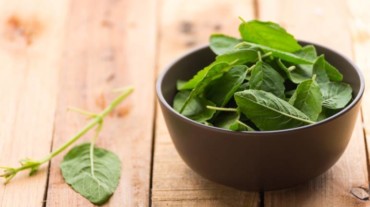
Over the past few years, we have seen an increased awareness on boosting immunity. There is a lot of information on what to eat and what to avoid on the public forum. Without an effective immune system, our bodies would be vulnerable to disease-causing bacteria, viruses, parasites, and more. It keeps us healthy as we regularly drift through a sea of pathogens. So, try exploring the world of herbs for immunity.
It is crucial to understand that immunity is not a single entity or organ. It is a vast and complex network of cells, proteins, and tissues in our bodies that works in perfect harmony, constantly on the lookout for invading microbes. The immune system keeps a record of every germ it has ever defeated, so it can recognize and destroy the microbe quickly if it enters the body again.

Balance is the key! An imbalanced immune system could result in either overactive or low immunity. Low immunity can lead to catching a cold, flu, and infections, and most people often find it difficult to recover from any illness.
Overactive immunity may lead to allergies or autoimmune conditions, wherein immune cells attack their own body tissues leading to inflammation which can cause conditions like rheumatoid arthritis, severely affecting the quality of life.
Genetics, age, gender, and mental health can play a role in immune response.
The intensity of immune responses may differ from person to person. For example, people exposed to the same germ experience the illness differently during a seasonal flu outbreak. While some become seriously unwell, others may remain unaffected. This is because genetic factors influence the immune system to a great extent.
Research has found that age and gender also influence the overall immune response. It has been found that immunity is comparatively weaker in children and senior citizens. On the contrary, the ability to fight infections is better among healthy young adults. Lack of sleep, stress, anxiety and depression, low nutrition levels, and vitamin D deficiency affects immunity.
Other factors that lower immunity are medications such as steroids and anti-allergy and cancer-treating drugs. Diets that lack fruits and vegetables and are high in fat, a sedentary lifestyle, smoking, and alcohol consumption also have a negative impact on immunity.
Lifestyle modification is the first step to build immunity.

Ayurveda is one of the earliest systems of medicine to discover this intra-individual difference, identify the vulnerability, and suggest customized care. Not providing the invading germ with a favourable condition to grow inside the body by strengthening immunity is an effective way to fight illnesses. Therefore, increasing the body’s own natural resistance to the disease is a better approach, rather than directly neutralizing the invading germ itself.
Select Topics of your interest and let us customize your feed.
PERSONALISE NOWStrong immunity can be achieved by improving the body’s overall capacity through good nourishment, adopting a healthy lifestyle, proper sleep, adequate exercise, yoga, meditation, and spiritual practices.
Incorporating immunomodulators help build your body’s own defense mechanism.
Ayurveda advises Rasayana, a specific group of immuno-modulatory preparations, which helps enhance the body’s natural ability to overcome infections. Herbs such as Ashwagandha (Indian Ginseng), Guduchi (Indian Tinospora), Haridra (Turmeric), Amla (Indian Gooseberry), Tulsi (Holy Basil), and preparations such as Chyavanaprasha help improve immunity and support the body’s fight against infections.

We can add some of the easily available herbs found in our homes or market to our diet to supplement immunity. Some of these are:
It is one such wonderberry and arguably one of the best among superfood berries. Amla fruit is rich in Vitamin C and other naturally occurring antioxidant compounds. Experts suggest that antioxidants such as Amla can help decrease viral replication, reduce rapid viral propagation, and decrease virus-induced oxidative injury, and thus, could be very useful in fighting viral infections.
Tulasi is revered as the “Queen of herbs” and found in most Indian houses. It is admired as the “elixir of life” and believed to help prevent diseases and promote general health, well-being, and longevity. Research suggests that Tulasi can help strengthen immunity and lower respiratory inflammation.

Turmeric or haldi forms an integral part of Indian cooking. It has been extensively used for centuries for its antiseptic, anti-allergic, and anti-inflammatory benefits.
Herbs such as Giloy (Guduchi) and Ashwagandha (Indian Ginseng) have also gained immense popularity, especially during the pandemic.
Modulating or managing the immune system is the prominent benefit attributed to giloy. It is found to potentiate macrophages, which are specialized immune cells in the body that are responsible for detecting, engulfing, and destroying infection-causing germs.

Ashwagandha helps promote healthy weight gain, improve general nutritional status, and improve hemoglobin levels, muscular strength, and endurance. Ashwagandha is also known to help calm the mind, balance emotions, and improve stamina and energy.
These herbs can help strengthen our immunity, and under proper guidance, keep us healthy and well.